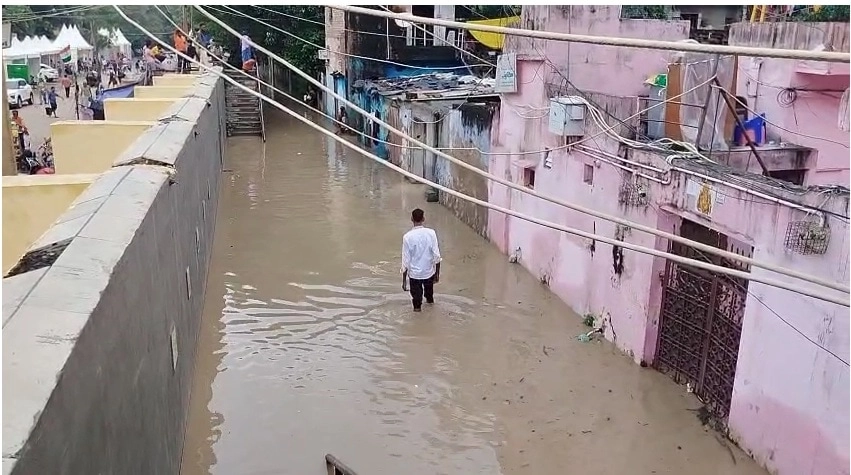In recent days, the city of Delhi has been grappling with a significant crisis as floodwaters from the Yamuna River have breached the danger mark, inundating numerous homes and causing widespread distress among residents. The situation has escalated due to heavy rainfall in the region, resulting in an unexpected rise in water levels. As the river swelled beyond its banks, many neighborhoods situated along its banks faced the immediate threat of flooding, forcing families to evacuate their homes in search of safety. The impact has been particularly severe in low-lying areas, where water has entered homes, damaging property and displacing residents.
Local authorities have been working tirelessly to address the crisis, deploying rescue teams and setting up relief camps for those affected by the floods. The government has urged residents to remain vigilant and to heed warnings regarding the rising waters. Emergency services are on high alert, ready to assist those in need. Community volunteers have also stepped up, providing support to families who have lost their homes and belongings. The response includes distributing food, water, and essential supplies to those in the relief camps, highlighting the spirit of solidarity among residents in the face of adversity.
In addition to the immediate humanitarian response, the flooding has raised broader concerns about urban planning and infrastructure in Delhi. The city has long struggled with inadequate drainage systems, which have exacerbated the effects of heavy rains. Experts warn that climate change is likely to increase the frequency and intensity of such weather events, making it imperative for city planners and policymakers to rethink how they approach flood management and urban resilience. As the situation unfolds, it is clear that a comprehensive strategy is needed to mitigate the risks associated with future flooding events.
As the waters begin to recede, the long-term recovery process will be crucial for affected families and communities. Assessing the damage and providing support for rebuilding will be essential steps in helping residents return to their normal lives. The recent events serve as a stark reminder of the vulnerabilities faced by urban populations in the context of climate change and natural disasters. Moving forward, it will be vital for the government and civil society to collaborate on effective solutions that not only address the immediate needs caused by the floods but also lay the groundwork for a more resilient future for Delhi.




